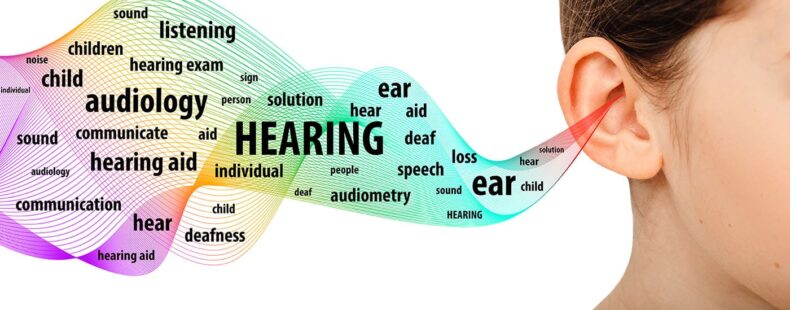According to the WHO report,” by the time we reach 2050 nearly 2.5 billion people are likely to have some degree of hearing loss and at least 700 million will be requiring hearing rehabilitation”.
Around 1 billion young adults are in danger of permanent, avoidable hearing loss due to unsafe listening practices and increasing noise pollution.
Hearing loss and deafness
A person who is not able to hear or someone with normal hearing thresholds of 20 dB or more in both ears is said to have hearing loss.
Hearing loss may vary ranging from mild to severe, or profound. Loss of hearing ability can affect one ear or both ears and leads to difficulty in hearing conversational speech or loud sounds.
‘Deaf’ people mostly have severe hearing loss, which implies very little or not at all hearing. People with disabilities often use sign language for communication.

Hearing loss is defined as one of three types:
- Conductive hearing loss involves the outer or middle ear
- Sensorineural that involves the inner ear
- Mixed that has a combination of both the two mentioned above
Aging and chronic exposure are two factors to loud noises. Both contribute to hearing loss. Other factors, such as excessive earwax, can temporarily decrease the ability how well your ears to conduct sounds.
Symptoms of loss of hear
Some signs and symptoms of hearing loss that indicates you have loss of hearing may include:
- Less clear or quieter speech and other sounds
- Facing difficulty in understanding words, especially against background noise or in a crowd
- Trouble hearing consonants
- Continually asking others to speak more unhurriedly, clearly, and loudly
- Requiring to turn up the volume of the television or radio
- Escape from conversations
- Avoidance of some social settings
When to consult a doctor

An immediate visit to the doctor is advisable if you have a sudden loss of hearing, particularly in one ear. Take necessary steps if difficulty hearing is interfering with your day-to-day life. Age-related loss of hearing occurs gradually, so you may not notice it at first.
How hearing loss can occur
There are many causes due to which hearing loss may occur that includes:
- Damage or injury to the inner ear Aging, noise pollution, and exposure to loud gadgets may cause wear and tear on the hairs or nerve cells in the cochlea that transmit sound signals to the brain effectively, and failure of which causes hearing loss.
- Higher-pitched tones may become less hearable to you. It may become difficult for you to pick out words against background noise.
- The gradual buildup of earwax. Little earwax is enough for the ear to prevent any dust particles from entering the ear canal. But excessive earwax can block the ear canal and prevent the conduction of sound waves. Earwax removal can help restore your hearing.
- Ear infection or tumors. In the outer or middle ear, any of these can cause hearing loss.
- Ruptured eardrum
Loud blasts of noise such as music, sudden changes in pressure, poking your eardrum with an object, and infection can cause your eardrum to rupture and affect your hearing.
When to consult a doctor
An immediate visit to the doctor is advisable if you have a sudden loss of hearing, particularly in one ear. Take necessary steps if difficulty hearing is interfering with your day-to-day life. Age-related loss of hearing occurs gradually, so you may not notice it at first.
Read More: 50-50 about Dengue or Covid: preventive measures and symptoms













